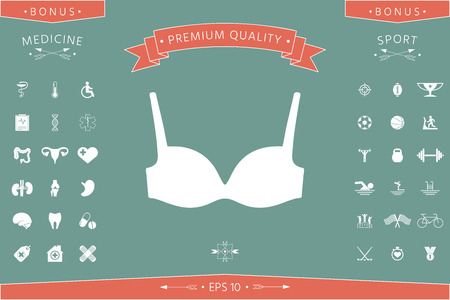Introduction to Non-Surgical Aesthetics
In recent years, the UK has witnessed a remarkable surge in the popularity of non-surgical aesthetics, with more Britons than ever before opting for non-invasive beauty treatments. From high streets in London to boutique clinics in Manchester and Edinburgh, the demand for subtle enhancements without going under the knife is reshaping the nation’s approach to self-care and personal style. This growing trend is not just about looking younger; it’s deeply rooted in a desire for natural results, minimal downtime, and an overall holistic approach to wellness. As conversations around beauty become more open and inclusive across British society, treatments like dermal fillers, anti-wrinkle injections, skin boosters, and laser facials are gaining mainstream acceptance. Key drivers behind this shift include advances in technology, greater accessibility to expert practitioners, and a cultural move towards embracing subtlety over drastic change. The UK’s aesthetic landscape is evolving rapidly—reflecting changing attitudes towards beauty, confidence, and what it means to invest in oneself.
2. Cultural Attitudes Towards Beauty and Ageing in the UK
To truly understand the rise of non-surgical aesthetics in the UK, its important to first explore traditional British perspectives on beauty and ageing. For generations, there has been a certain understated elegance to the British approach—one that favours subtlety, humility, and a natural look over overt displays of vanity. The classic phrase “a stiff upper lip” speaks volumes about how many Britons have historically handled ageing: with quiet dignity and acceptance, often shying away from dramatic interventions.
However, as British society becomes increasingly diverse and global influences permeate daily life, attitudes are shifting. The concept of self-care has evolved; it’s no longer merely about maintaining basic health but also about embracing confidence and wellbeing. A new openness to discussing mental health, wellness, and personal grooming means more people are comfortable investing in their appearance—not for others, but for themselves.
This evolution can be illustrated by comparing traditional and modern attitudes towards beauty:
| Traditional Attitude | Modern Attitude | |
|---|---|---|
| Approach to Ageing | Accept gracefully, minimal intervention | Proactive self-care, open to enhancements |
| Beauty Ideals | Natural, understated, “less is more” | Polished, confident, subtle improvements |
| Openness About Treatments | Private matter, rarely discussed openly | More transparency, sharing experiences |
| Motivation for Aesthetic Choices | Avoid drawing attention; blend in | Self-confidence; empowerment; wellbeing |
The influence of social media and celebrity culture has further fuelled this shift. Seeing public figures speak candidly about their aesthetic routines—whether it’s a bit of Botox or a skin-boosting facial—has made these options feel less taboo. Younger generations especially view non-surgical treatments as an extension of regular self-care rather than something to hide or be embarrassed about.
This cultural transition has paved the way for the popularity of non-invasive options: they align perfectly with the modern British ethos of seeking subtle yet effective ways to look and feel one’s best without going under the knife. The result is a nuanced blend of old-world grace with contemporary openness—a uniquely British embrace of aesthetic innovation.
![]()
3. Popular Non-Surgical Treatments Among Britons
When it comes to non-surgical aesthetics, Britons have developed a clear set of favourites that reflect both local trends and a uniquely British approach to beauty. There’s an unmistakable preference for subtlety and natural enhancement—think the “just had a lovely weekend away” glow rather than dramatic transformations. This understated ethos can be seen in the most sought-after treatments across the UK.
Dermal Fillers: Subtle Enhancement, British Style
Fillers have soared in popularity, particularly among those seeking to restore lost volume or gently sculpt facial contours without going under the knife. Whether it’s softening smile lines, restoring plumpness to cheeks, or enhancing lips with a “barely-there” touch, these treatments appeal to Britons’ desire for discreet improvements. Many clients appreciate that results are visible yet not overtly obvious—a nod to the classic British reserve.
Botox: The Go-To for Effortless Freshness
Botox continues to reign as a staple non-surgical treatment, especially among professionals who want to look refreshed but never frozen. It’s less about chasing youth and more about maintaining a well-rested, approachable appearance—something that fits perfectly with British sensibilities around ageing gracefully. Small tweaks that smooth frown lines or crow’s feet help individuals feel confident in their own skin, without inviting unwanted attention or speculation.
Skin Rejuvenation: Glowing Without Shouting
Treatments like microneedling, chemical peels, and laser facials are steadily gaining traction as more Britons prioritise healthy, radiant skin over dramatic changes. These procedures deliver that coveted luminosity which seems effortless and is often described as “fresh-faced.” For many, this aligns beautifully with the UK’s growing wellness movement—where looking after yourself is as important as looking good.
Why These Choices Resonate Locally
The appeal of non-surgical options lies in their flexibility and the low-key results they deliver. In a culture where understatement is prized and overt cosmetic work is sometimes met with scepticism, these treatments allow people to enhance their features while still feeling authentically themselves. Whether it’s a subtle lift from fillers or an overall glow from rejuvenating treatments, Britons are embracing options that blend seamlessly into everyday life—and that’s exactly how they like it.
4. Safety, Regulation, and Professionalism
One of the key factors behind the growing popularity of non-surgical aesthetics in the UK is the nation’s strong emphasis on safety and professional standards. Unlike some parts of the world where regulations may be somewhat lax, the UK has made significant strides in ensuring that only qualified practitioners perform aesthetic procedures. This focus on regulation not only protects consumers but also elevates the reputation of the entire industry.
The Role of Regulation in Building Trust
For many Britons, trust plays a pivotal role when considering any cosmetic treatment, especially those involving injectables or advanced skincare technologies. The UK government and industry bodies such as the General Medical Council (GMC) and the Joint Council for Cosmetic Practitioners (JCCP) have implemented frameworks designed to safeguard clients. These regulations mandate proper training, continual professional development, and adherence to ethical standards.
Benefits of Choosing Licensed Practitioners
| Aspect | Licensed Practitioner | Unlicensed Practitioner |
|---|---|---|
| Safety Standards | Strictly follows protocols; minimises risks | May cut corners; increased risk of complications |
| Qualifications | Medically trained; certified courses completed | Unverified credentials; limited training |
| Aftercare Support | Comprehensive aftercare and follow-up | Lack of structured aftercare provision |
| Consumer Confidence | High trust due to transparency and accountability | Diminished trust; uncertain outcomes |
| Industry Reputation | Boosts public image and credibility of sector | Poor practices can damage overall reputation |
The Impact on Industry Reputation and Consumer Experience
The visible commitment to regulation and professionalism is transforming consumer attitudes towards non-surgical aesthetics. As someone who values both artistry and safety, I find it reassuring that clinics across the UK are prioritising ethical practice. This not only encourages more people to explore subtle enhancements but also reassures them that their wellbeing is at the heart of every procedure. Ultimately, this culture of accountability is helping to position non-invasive treatments as a trusted part of modern British self-care routines.
5. Influence of Social Media and British Celebrities
There’s no denying the powerful role that social media and British celebrities play in shaping the aesthetics landscape across the UK. From Instagram to TikTok, influencers and TV personalities have made non-surgical treatments not just accessible, but aspirational. As someone who scrolls through feeds filled with subtle tweakments and glowing before-and-after shots, I can attest to how normalised these procedures have become in everyday conversation. The likes of Love Island contestants or Made in Chelsea stars regularly sharing their journeys with lip fillers, skin boosters or wrinkle-smoothing injections has brought these options firmly into the mainstream.
It’s not just about selling a look; it’s about setting trends and breaking old taboos. Where once there might have been a hush-hush attitude towards cosmetic tweaks, now British celebrities openly discuss their choices on chat shows, podcasts, and social media stories. This openness encourages transparency, making it easier for people to ask questions and seek reputable clinics for treatments such as Profhilo or tear trough fillers without feeling judged.
The influence doesn’t end at awareness—celebrities also shape aesthetic ideals. Soft, natural enhancements championed by UK personalities have led many to favour subtle improvements over dramatic changes. It’s a uniquely British preference: understated elegance rather than overt transformation. Seeing familiar faces embrace “tweakments” helps the wider public feel comfortable exploring non-surgical routes themselves, guided by trusted voices they see on screens every day.
In essence, this cultural shift—driven by influencers’ candidness and celebrities’ willingness to share—has made non-invasive aesthetics part of our everyday beauty routine. Whether you’re inspired by a Strictly Come Dancing judge’s radiant complexion or a YouTuber’s honest review of microneedling, the message is clear: non-surgical options are here to stay in British beauty culture.
6. Affordability and Accessibility of Non-Surgical Options
One of the most significant factors driving the surge in non-surgical aesthetics across the UK is their increasing affordability and accessibility. For many Britons, traditional cosmetic surgery has long been out of reach—not just financially, but also in terms of convenience and recovery time. Now, with a growing range of clinics offering non-invasive treatments on high streets from Manchester to Brighton, these procedures are no longer reserved for celebrities or the ultra-wealthy.
The Role of Cost
Non-surgical options such as anti-wrinkle injections, dermal fillers, and skin rejuvenation therapies typically come at a fraction of the price of surgical alternatives. This lower cost barrier means more people can consider enhancing their appearance without committing to a hefty investment. For instance, while a facelift might set someone back thousands of pounds, a series of targeted injectables can deliver natural-looking results for just a few hundred—making self-care more attainable for everyday Britons.
Convenience as a Key Driver
Time is precious, especially in the fast-paced rhythm of British life. Non-surgical procedures are appealing because they fit seamlessly into busy schedules. Many treatments can be performed during a lunch break, with minimal downtime and almost instant return to daily activities. This “pop-in, pop-out” approach aligns perfectly with modern lifestyles, making it far easier for people to prioritise their personal confidence and wellbeing.
Wider Access Across the UK
The geographical spread of aesthetic clinics has grown considerably in recent years. No longer confined to London’s exclusive postcodes, quality non-surgical treatments are now available from urban hubs like Birmingham and Leeds to smaller towns and even rural areas. This democratisation means that looking and feeling your best isn’t dictated by postcode or privilege—it’s an opportunity open to anyone who wishes to explore it.
Ultimately, the combination of cost-effectiveness, convenience, and widespread availability is transforming how Britons approach beauty and self-care. As these barriers continue to fall away, it’s clear why so many are choosing non-invasive options as their preferred route to confidence.
7. Looking Ahead: The Future of Non-Surgical Aesthetics in the UK
As someone who has witnessed the transformation of the UK’s beauty landscape firsthand, it’s impossible not to be excited about where non-surgical aesthetics are heading. New technologies are emerging at a remarkable pace—think advanced laser treatments, injectable innovations, and AI-powered skin diagnostics—all designed to deliver natural results with minimal downtime. These advancements aren’t just about convenience; they’re also democratising beauty, making sophisticated treatments accessible to a wider range of Britons than ever before.
We’re also seeing a palpable shift in societal attitudes. Once whispered about or confined to celebrities, non-invasive procedures are now openly discussed among friends over coffee or even debated on primetime telly. This growing acceptance is helping to dismantle the old stigma, allowing people to pursue their own version of confidence without fear of judgement. As more Brits embrace these treatments, our collective understanding of beauty is evolving too—from chasing perfection to celebrating individual enhancement and self-expression.
Looking forward, I believe the future of non-surgical aesthetics in the UK will be defined by personalisation and inclusivity. Clinics are already tailoring treatments to suit diverse skin types, ages, and lifestyles, ensuring everyone feels welcome. The focus is shifting from ‘fixing flaws’ to empowering people to look and feel like the best versions of themselves—an ethos that resonates deeply with our British sense of authenticity and understated elegance.
Ultimately, as technology continues to progress and our cultural perceptions grow more accepting, non-surgical aesthetics will become an integral part of everyday self-care for many in the UK. It’s an exciting era—one where innovation meets tradition, and where beauty truly becomes a matter of personal choice and quiet confidence.


